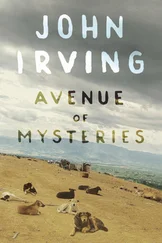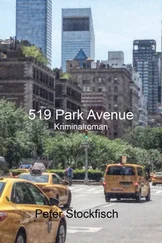The evening after his visit to the library, Joni joined him for dinner at his house on the Vluchtestraat, and when he shared his findings with her during the washing-up she began to cry. It was the first time he had seen her in tears, and while he felt an innate tenderness he still found it difficult to understand her reaction. He asked questions, the wrong questions.
“Are you crying because of the foreman he murdered?”
“No, I didn’t know him.”
“Are you crying because you’re ashamed?”
“No, of course not. Why would I be ashamed?”
“Because of the gruesome details, for instance.”
“No!” she blubbered, “yeah, that too , I’m crying about everything, you know? And it wasn’t murder, it was manslaughter. I’m just sad for the guy himself, for his bad luck. In spite of everything I really feel sorry for him. Is that so crazy?”
Yes, he thought, that is crazy. Crying for a boy who dumped a bootful of sand on your face and twenty years later bashes a fullgrown man to a pulp. Strange indeed.
Things got even weirder at the dinner table. This is what happened. Janis was the first who could get a word in after Tineke told her daughters that Wilbert had inquired about their well-being. She cleared her throat and asked, with an atypically small voice, if Wilbert had phoned from prison. No, Tineke answered, he was free.
“Is that what Wijn was doing at the reception?” Joni demanded, harshly, distrustfully.
Those honorary doctorates — Aaron knew immediately what she was talking about. (“Oh. My. God,” she had said when a tall, badly dressed man with a battered face walked into the foyer. “That overdressed construction worker over there,” she’d whispered to him, “the one with the gray Schwarzenegger hair? That’s Menno Wijn.” She left it at that. So you’re Wilbert’s guardian angel, he thought to himself.)
“To tell us about Wilbert’s release,” Tineke said.
“And I only find out now ?” asked Joni. It sounded unbelievably rude.
“The city has exploded, in case you haven’t noticed,” Sigerius said. He sat half-turned, staring outside, only his right hand lay on the table, his thumb and index finger fidgeted with a napkin ring.
“Mom,” said Joni, “repeat to me exactly what Wilbert said.” She grasped the tabletop with both hands. Either to provoke her husband, or because she was afraid Joni would flip the table over, Tineke did what was asked of her. It was a brief, bone-dry conversation. “Those two still alive?”—“Yes, they’re alive”—and that was about it.
“Where does he live?” Joni asked.
“America,” Sigerius said without turning around.
“How do you know?” asked Tineke. All four of them looked at the back of his sullen head; Sigerius’s ears resembled amputated fireworks fists.
“I don’t know anything,” he said. “I’m only wishing out loud.”
“How is he?” asked Joni.
Tineke told him that she had asked Wilbert just that, at the last minute, they were already finished — and he had brought the receiver back to his mouth and answered rather sarcastically that he was still alive too — and that was that. Just then Sigerius turned to them. “What a pity,” he said, his face still flushed from laughing. “It would’ve saved us a lot of trouble. Wilbert calling up to let us know he’s dead.”
Aaron was the only one who laughed, out of awkwardness. Janis and her mother were silent. Joni looked at her father for an entire second, her mouth trembling. She got up, picked up the Wedgwood platter of potato croquettes with both hands, turned her upper body a quarter of a turn (Tineke: “ Joni, what are you doing! ”) and flung it to the floor with a shrill roar, smashing it to pieces. It was an unbelievable crash. Janis shrieked. They heard the shards skitter across the floor; the croquettes tumbled against the skirting boards, spun in little circles. Sigerius sat motionless like a deaf-mute.
“What a shitty thing to say,” she screamed, and yet it sounded restrained. She began to cry, short little gasps, they were more like angry sobs. They looked at her, the four of them, the way she stood there, her shoulders trembling, her furious eyes directed at her father.
“Malicious coward .”
That Sigerius did not make short shrift of this exhibition — Aaron did not understand that either. The man who just heard he was about to become a Cabinet minister, the man who steered a management team of twelve intolerable deans. It was as though he’d been crying all evening instead of laughing.
“Fuck it!” Joni shouted. She turned and rushed out of the sunroom, now sobbing at full throttle. They listened to the sound of her flip-flops as she crossed the living room into the wide entrance hall and stormed up the steps. Upstairs a door slammed.
The sounds from the garden, the rustling of the poplars, permeated the sunroom. Sigerius rubbed his hand over his stubbly jaw. “Well.” And then, when no one answered, casually, much too casually: “We should have stayed in America ourselves. We should never have come back. Never. I wish we were still in Berkeley. Don’t you, Tien?”
So back to feckin’ Dallas after all. Víctor Sotomayor got all persnickety about the bank guarantee, vetoed the notary Rusty and I had suggested, and a portion of those millions had to be funneled through a bank in Havana to a private company in Amsterdam. To make a long story short: endless niggling and hair-splitting that we just swallowed for fear the Barracks might elude us yet. So Dallas it was, there was no getting out of it. Just before leaving Sunset Boulevard for LAX I checked my various in-boxes and was slightly unnerved to see that Aaron had sent me seven messages in the past few days. I really wasn’t in the market for a pen pal. I skimmed the first e-mail, the longest one; the rest were brief PSs. “Why haven’t I heard anything?” he mailed the day before yesterday. “You aren’t sick, are you? Maybe you’re on vacation.”
Mulling over his letters in the plane, I decided not to answer for the time being. He’d kind of started off on the wrong foot by inviting himself out to Los Angeles, which he subsequently took back, saying that his “health” would “probably” prevent long-distance travel. In the third or fourth e-mail he backtracked again, that it would still be “really and truly special” to see me and go to Berkeley together; now that bygones were bygones he thought it would be “cathartic” for us both, he was “dying” to see where I’d spent my youth, having heard so much about it. I was extremely happy there, he knew, couldn’t we … etc. etc.
No, we couldn’t.
I eventually managed to iron things out with Sotomayor up in his Stone Tower penthouse. I couldn’t help thinking that I’d been summoned back to that mahogany-polish-stinking office of his just as a reminder of who was boss. After an interminable prelude on his part, the business details were worked out in a matter of minutes; he then led me through two heavy doors to an adjacent space. Valued business partners, he said with satisfaction, should have the opportunity to see this. What’s up, you Cuban porker, I thought. For the moment I was afraid Víctor had got wind of our plans for his Barracks, that Rusty had shot off that flounder-mouth of his. He led me into an ominously old-fashioned-looking office: large, dusty succulents in brown gravel, yellowy-brown Venetian blinds I hadn’t seen in any of the other offices. The spherical feet of a heavy oak desk rested on a faded Persian carpet. On the desktop with inlaid green leather stood an ancient, bulky computer in the same mashed-potato color as the rest of the room. Lots of photos in gilded frames. Right in front of the high-backed, cracked leather desk chair was a pile of yellowed documents, a pair of horn-rimmed reading glasses, and, on a flattened-out gentleman’s handkerchief, a small steel-nosed instrument whose tongs clutched tiny curls of black hair. I eventually realized it was a nose-hair trimmer.
Читать дальше












